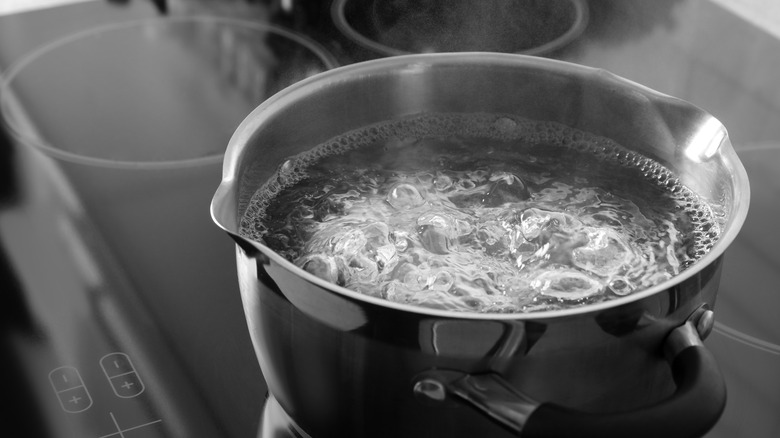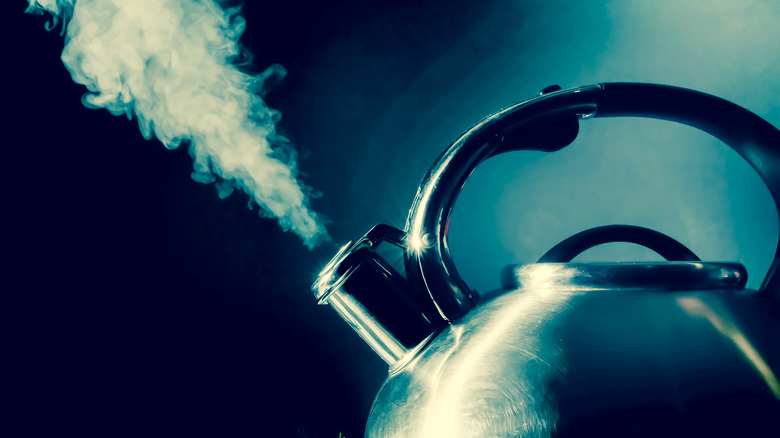Where Does The Term 'Piping Hot' Come From?
"Hey, be careful! That pan is piping hot." "Boil the water until it's piping hot." You've more likely than not heard these phrases everywhere, from television shows to cookbooks. The term "piping hot" usually refers to something being extremely hot, mostly in the context of food or drink. But where exactly did this common saying come from? Who invented it? And when did it come about?
The answer to these questions lies within the practice of colorful cooking terms, coming about from metaphors, slang, and clever turns-of-phrase throughout history. The phrase "a la king," for instance, has been suggested to have been named from hotel chefs to racehorse winners (via Quaint Cooking). The term "a la nage" is actually something of a French pun, which translates to "in the swim," per Michelin Guide. The phrase is used to describe seafood "swimming" in a light and flavorful broth. If you've ever heard about a "baker's dozen" of something, you're hearing about a practice that goes back to 13th century England, where bakers put an extra loaf of bread in orders of twelve loaves. The real reason you get 13 in a baker's dozen is to avoid "cheating" customers with less bread (via Britannica). The world of culinary terms is filled with slang, abbreviations, and even puns.
"Piping hot" follows this tradition, but rather than referring to French turns of phrase or old baking practices, it seems to have potential ties to kitchen items and instruments.
Piping hot can refer to tea kettles or bagpipes
According to the Village Voice, the term piping hot actually goes back to the medieval period (or at least a variation of the term) in the works of Geoffrey Chaucer. This would mean that whatever the term's origins are, it must have been something incredibly common even in medieval England.
Village Voice speculates that "piping hot" actually has roots in a tea kettle, or the boiling process of making tea. When the water inside the tea kettle reaches an extreme temperature, the steam within the kettle shoots through the "pipe" or spout of the kettle, making that trademark whistle sound like a musical pipe.
The Phrase Finder explains that the term was originally believed to have stemmed from bagpipes in Scotland. As food would be brought out to a table for a feast, there would usually be bagpipes to accompany the procession. Someone could have made a joke regarding the food "piped in" while it was still hot, and that's how the term "piping hot" might have originated. The Phrase Finder, however, admits that this theory isn't true and that the actual origins of the term are similar to the tea kettle theory, albeit referring to the sound steam makes as it escapes hot foods rather than just a tea kettle.

